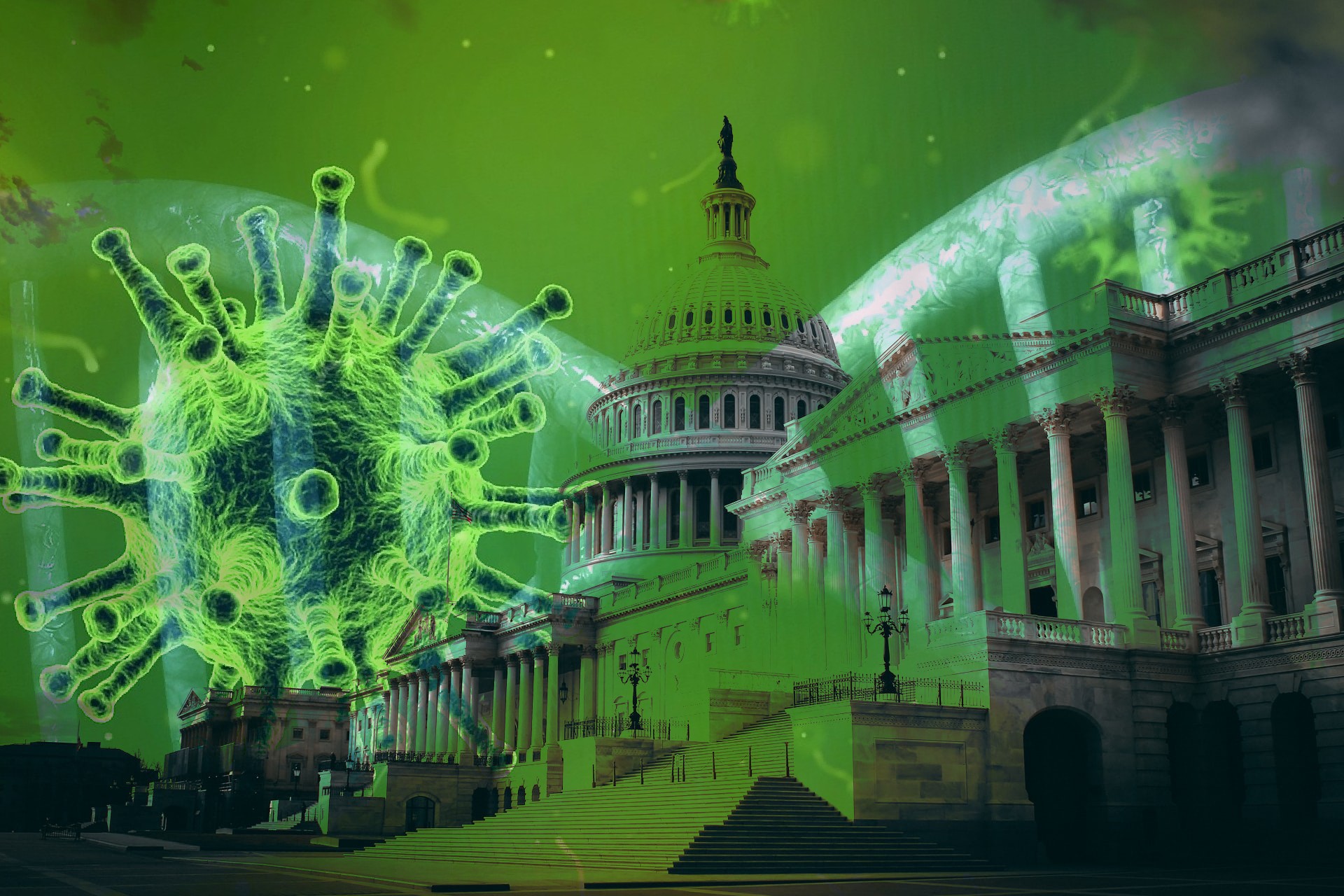Sen. Ron Johnson, R Wisconsin, was suspended from YouTube on June 11. The suspension is just for a week and is only blocking him from uploading new videos to the service, but Johnson is upset all the same. The reason why he was suspended? He promoted Covid-19-19 conspiracy theories.
“YouTube’s ongoing Covid-19-19 censorship proves they have accumulated too much unaccountable power,” Johnson said in a statement. “Big Tech and mainstream media believe they are smarter than medical doctors who have devoted their lives to science and use their skills to save lives. They have decided there is only one medical viewpoint allowed, and it is the viewpoint dictated by government agencies.”
No, Senator, the government doesn’t dictate science.
Fighting misinformation on social media
We are fighting two pandemics. One is against Covid-19-19. After over a year of periodic lockdowns and disease control measures, much of the world sees the light at the end of the tunnel. Vaccines, better treatment, and general knowledge is giving us the upper hand. (Equitable distribution of these measures is another conversation entirely.)
The other pandemic is one we are just barely coming to grips with. This is misinformation. Misinformation and conspiracy theories have been around forever, but the advancement of social media has caused it to spread like wildfire. QAnon, the theory that the world is run by a cabal of pedophilic, child sacrificing, Satan worshippers that Donald Trump can only stop, is possibly the most infamous of these conspiracies. But the conspiracies about covid-19 are causing more direct harm.
Three theories are most popular right now. Our elected officials bandy about all of them in Congress. Science backs none of them. These theories are that:
The disease isn’t actually that bad.
Worldwide, covid-19 has officially caused over 3.75 million deaths. In the US alone, that number is just shy of 600 thousand. That doesn’t even begin to account for the lasting damage the disease causes. Symptoms lasting months are relatively common. Hospitalization rates are still in the double digits of percentage. The strain this puts on hospitals means patients not sick with covid-19 are adversely affected, sometimes dying, due to lack of care. The pandemic could be worse, and new variants show it could still take that turn, but that doesn’t mean it should be ignored either.
Covid-19 can be readily cured with current medicine
I really wish this were true. It would make everything easier if there were an easy treatment. Unfortunately, there isn’t. Our treatment methods are improving, but only in the incremental ways general knowledge improves treatment. We have a better idea of when a patient needs oxygen, when they would benefit from steroids, when they need a ventilator, etc. But there is no study that shows any existing medicine cures covid-19. Whether it’s chloroquine or injecting bleach, it’s all just bunk.
Vaccines aren’t needed and can be harmful
Whether you’re hesitant about this vaccine in particular or just antivaccine in general, you are spreading harmful theories. Vaccines are generally effective, and they are most definitely safe, but they aren’t 100% effective. In addition, some people cannot get vaccines. They could be immunocompromised or be allergic to an ingredient in the vaccine. These people rely on those around them not being sick. If enough of the population chooses not to be vaccinated, the risk to those who have no choice goes up.
I’m not going to go over every piece of evidence on why these theories are junk here; if I did this would be a novel, but luckily for you, there are lots of great places to go on the internet! Try checking out highly regarded scientific journals such as Science and Nature. You can also see blogs from people dedicated to science communication, such as Science-Based Medicine.
The problem is that these theories are no longer just conspiracies people discuss after one too many drinks. They are now standard discourse in much of the population. Aided by social media, conspiracies and misinformation is being used by our politicians to make policy. They are even relying on appeasing the conspiracy theorists on winning elections. Ron Johnson knows this and, whether he believes his lies or not, is spreading them for his personal gain. This is hurting people. This is wrong.
People are following science in real-time
When you learn about science in school, it’s a really simplified version. You make a hypothesis, test a hypothesis, and form a conclusion. In the real world, it’s a lot messier than that. The variables you have to control for are far more complex. This complicates testing even the simplest of hypotheses. For instance, scientists are constantly theorizing whether coffee is healthy. But “is coffee healthy” is complex. First, you have to consider how the coffee is roasted. Then how is it brewed, are you using hot water or making a cold brew? Are you filtering your coffee with a paper filter or a strainer? Even if you narrow that down, you have to control for the health of your subjects. Are people healthier because they drink coffee black from a French press, or are people that are already healthy simply more likely to drink black coffee from a French press? And that’s still a much simpler study than those that prove whether or not a medicine works.
Worse than just that, science is constantly changing. That’s because we are constantly testing our old assumptions and results. Maybe someone made a mistake analyzing results or didn’t control for a variable correctly. That’s why scientists publish their results. When a scientist completes and publishes a study, other scientists work to challenge it. Right now, we are watching this process play out in real-time. Our knowledge about covid-19 is constantly being challenged and studied. As new results come out, we adjust our policies. That’s why in the US, we didn’t require masks at first. We didn’t have anything to prove that wearing masks provided a benefit. Then we tested it, proved the benefits, and many jurisdictions required masks.
This process is great for science. It means we, ideally, are always working with the best and most accurate knowledge available at the time. Unfortunately, it’s antithetical to the political climate. In the political realm, once you make a stand, that is always your stance. Changing and updating your views is seen as inconsistent. Politicians can often make it further by being consistently wrong rather than being inconsistent at all.
The government isn’t deciding which science you can talk about.
Science is hard. Scientists spend years, sometimes decades, perfecting their knowledge on the most specific of subjects. These experts in their field prove that their theories are, or aren’t, true. It’s literally their job. In general, these experts come to a consensus on what is fact and what is fiction. This consensus is what we hold as truth, until a new consensus is made.
You can have all the discussions about free speech you want. You can have a big free speech rally in front of Four Seasons Landscaping. You can discuss whether or not “big tech” has too much control over political discourse. But you can’t, or at least you shouldn’t, confuse these discussions with spreading harmful conspiracies. And you definitely shouldn’t purposely confuse people for political gain.

